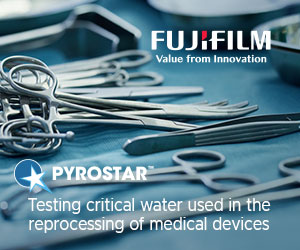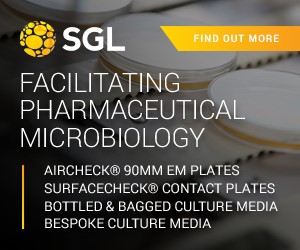In trials, the RapID method demonstrated excellent performance in the identification of oxidase negative Enterobacteriaceae1, anaerobic bacteria2, Gram-negative glucose non-fermenters3,4,5, Corynebacterium species6, yeasts and related organisms7,8 and streptococci and related organisms9,10. A new system is now available for the identification of staphylococci and related organisms.
In comparative evaluations, RapID was shown to perform significantly better than other leading commercially available systems, particularly in the identification of clinically significant yeasts8 and non-fermentative Gram-negative bacilli4, including Burkholderia cepacia5, an important pathogen in cystic fibrosis patients. The clinical significance of this accuracy was highlighted in one study where RapID Yeast Plus performed significantly better than other systems in the identification of Candida krusei, which is an important pathogen of immuno-compromised patients8. Since this organism has an innate resistance to fluconazole, prompt identification is extremely important for appropriate therapy to be administered quickly. Delays in such circumstances may have important clinical implications.
The RapID systems are favoured for providing rapid, same-day results3,4,7, compared to alternative methods that require 18-72 hours, and for being non-automated, allowing even smaller routine microbiology laboratories to adopt this method easily3. In one study the investigators concluded that the RapID method has the potential to save time, labour and money7. In another study the authors noted that the RapID method detects preformed bacterial enzymes and is not dependent on the growth of the organism2. This feature allows the panels to be incubated aerobically without the need for oil overlays - resulting in further savings on time and resources.
Unlike alternative methods that require separate inoculation of individual wells, RapID identification panels have a simple, one-step inoculation procedure. A suspect colony suspension is simply added to the inoculation tray and tipped into the test strip, inoculating each well simultaneously. Furthermore, each RapID panel has the same simple procedure, allowing users to pick up the method easily without having to remember different procedures for different organism groups. The clearly visible colour reactions are easy to read and the user-friendly, Windows®-based ERIC® software, with nine comprehensive databases for accurate and reliable results ranked by probability. A probability of >95% is necessary for species level identification to be made, ensuring that incorrect identifications are minimised.
Julie Elston, clinical applications manager, Thermo Scientific comments 'It is our aim to provide excellent performance criteria in products that offer real benefits to clinical microbiology laboratories. The RapID range has a proven track record in this regard and fits well within the Thermo Scientific range of products for the growth, isolation and identification of medically important micro-organisms, providing fast and accurate results that help health professionals to make important clinical decisions.'
For further information about the RapID microbial identification systems, please contact Thermo Scientific using the contact details at the top of this page.
Thermo Scientific is part of Thermo Fisher Scientific Inc., the world leader in serving science.
References:
1. Kitch, T.T., Jacobs, M.R. and Appelbaum, P.C. (1994) J.C.M. 32(4):931-934
2. Marler, L.M., Siders, J.A., Wolters, L.C. et al (1991) J.C.M. 29(3): 874-878
3. Kitch, T.T, Jacobs, M.R. and Appelbaum, P.C. (1992) J.C.M. 30(5):1267-1270
4. Vossler, J. and Roberts, D. (1993) ICAAC Abstract.
5. Kiska, D.L., Kerr, A., Jones, M.C. et al (1996) J.C.M. 34(4): 886-891
6. Hudspeth, M.K., Gerardo, S.H., Citron, D.M. and Goldstein, E.T. (1997) 97th ASM General Meeting Abstract C-459
7. Kitch, T.T., Jacobs, M.R., McGinnis M.R. and Appelbaum, P.C. (1996) J.C.M. 34(5):1069-1071
8. Wadlin, J.K., Hanko, G., Stewart, R. et al (1999) J.C.M. 37(6) 1967-1970
9. Arduino, M.J., McAllister, S.K., Shey, D.K. et al (1994) 94th ASM General Meeting Abstract C-138
10. You, M.S. and Facklam, R.R. (1986) J.C.M. 24(4): 607-611
|






